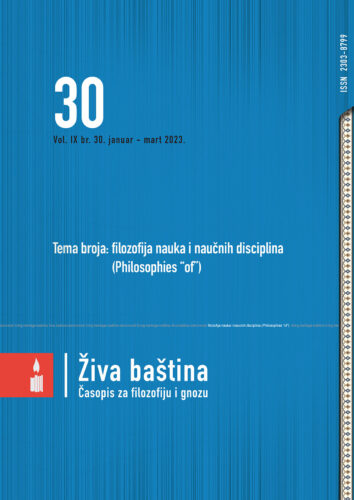UDK 1:28
Autor, u zamišljenom dijaloškom obliku, poput Platona, nastoji predstaviti najdublje spoznaje filozofije i religije koje iznosi jedan mudrac (ḥakīm) ljubopitljivom studentu. Student otkriva da mudrac posjeduje posebnu vrstu znanja za koju je potrebna duhovna spremnost. U tom kontekstu mudrac mu kazuje o djelimičnoj inteligenciji i Inteligenciji. Ono što naročito muči studenta jest problem zla. Mudrac će mu naglasiti da jedino mudri ljudi mogu stvarno odgovoriti na to pitanje posredstvom srca. Na kraju će mu savjetovati da odgrne zastor zla da bi istinski živio.
Ključne riječi: filozofija, religija, mudrac (ḥakīm), znanje, duhovna spremnost, djelimična inteligencija, Inteligencija, problem zla, srce.
A Student and a Sage
Mohammed Rustom
Abstract
The author, in an imaginary dialogical form, like Plato, seeks to present the deepest knowledge of the philosophy and religion, which are presented by a sage (ḥakīm) to an inquisitive student. The student reveals that a sage possesses a special kind of knowledge for which it is necessary to have spiritual readiness. In this context, the sage tells him about the partial intelligence and the Intelligence. What particularly bothers the student is the problem of evil. The sage will emphasize to him that only wise people can really answer that question through the heart. In the end, he will advise him to remove the curtain of evil in order to truly live.
Keywords: philosophy, religion, sage (ḥakīm), knowledge, spiritual readiness, partial intelligence, Intelligence, problem of evil, heart.

